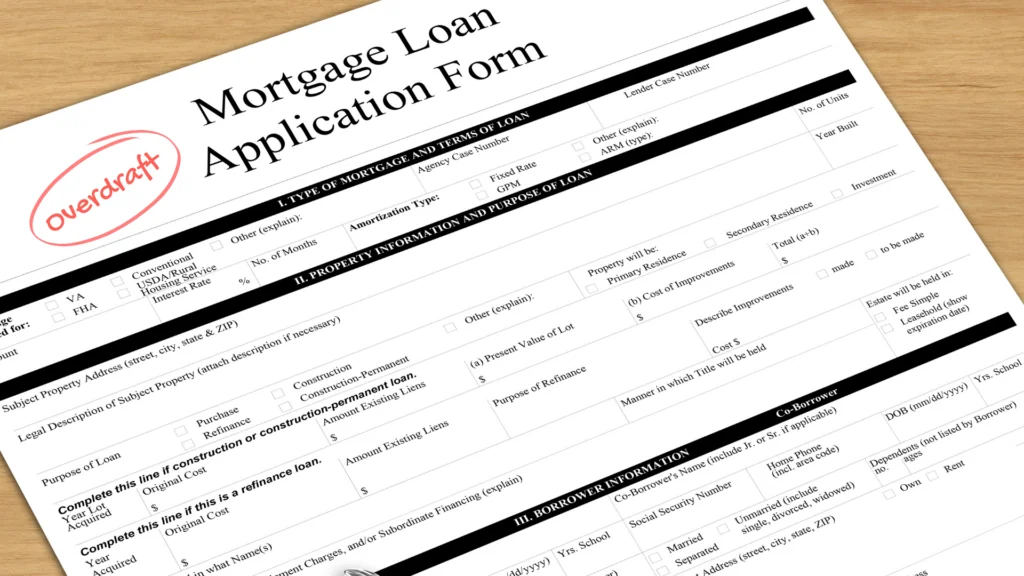- What Is the Maximum Mortgage I Can Get?
- What Affects Your Maximum Mortgage Amount?
- How Can I Get a Bigger Mortgage?
- How Does Being Self-Employed Affect Your Maximum Mortgage?
- Does a Bigger Deposit Mean a Bigger Mortgage?
- How Does Credit History Impact Your Maximum Mortgage?
- What Are the Maximum Amounts for Different Types of Mortgages?
- Can Remortgaging Help Me Borrow More?
- Key Takeaways
- The Bottom Line
What’s the Maximum Mortgage You Can Get in the UK?

Buying a property is one of the biggest financial decisions you’ll ever make. To make it work, you need to know how much you can borrow from a lender.
But figuring out the maximum mortgage you can get isn’t always straightforward. It depends on several factors, including your income, expenses, and the lender’s criteria.
In this article, we’ll cover the essentials of determining your maximum mortgage, including key tips to maximise your borrowing potential.
We’ll also address specific considerations if you’re self-employed, discuss the role of deposits, and highlight how your credit history could affect your borrowing capacity.
What Is the Maximum Mortgage I Can Get?
Lenders use different methods to calculate the maximum mortgage you can borrow, but most rely on income multiples.
This is a simple formula where your income is multiplied by a certain figure—typically around 4.5 times your annual income.
However, this can vary.
Some lenders might offer up to 5 or even 6 times your income if your finances are strong.
Here’s a table showing potential maximum mortgage amounts:
| Income | 3x Income | 4x Income | 5x Income | 6x Income |
|---|---|---|---|---|
| £35,000 | £105,000 | £140,000 | £175,000 | £210,000 |
| £40,000 | £120,000 | £160,000 | £200,000 | £240,000 |
| £45,000 | £135,000 | £180,000 | £225,000 | £270,000 |
| £50,000 | £150,000 | £200,000 | £250,000 | £300,000 |
| £60,000 | £180,000 | £240,000 | £300,000 | £360,000 |
| £70,000 | £210,000 | £280,000 | £350,000 | £420,000 |
As you can see, higher multiples can boost your borrowing power. But qualifying for these can be challenging. Lenders will look closely at your affordability and other financial commitments.
Want to know how much you can borrow? Try our mortgage affordability calculator. It will give you an estimate based on your income.
What Affects Your Maximum Mortgage Amount?
Several factors determine how much you can borrow:
- Income Stability – A steady income boosts your borrowing power. Lenders prefer stable employment or a consistent self-employment history.
- Outgoings – High monthly expenses, including debts, reduce the amount you can borrow. Lenders check your spending to ensure you can afford repayments.
- Deposit Size – A larger deposit lowers your loan-to-value ratio (LTV), often leading to better interest rates and a higher loan amount.
- Credit History – Good credit gives you access to better mortgage deals. Poor credit can limit your options, raise interest rates, and reduce how much you can borrow.
- Age and Mortgage Term – Younger borrowers can often get longer mortgage terms, increasing their maximum loan. Older borrowers may have shorter terms, reducing their borrowing capacity.
- Property Type and Location – Some properties or locations may make lenders cautious, affecting how much you can borrow.
- Interest Rates – Lower rates mean lower monthly payments, allowing you to borrow more. Higher rates mean you can borrow less.
- Lender’s Criteria – Each lender has different criteria, so the maximum amount you can borrow can vary depending on who you apply to.
How Can I Get a Bigger Mortgage?
If you’re aiming to borrow the maximum amount possible, there are several steps you can take to improve your chances:
- Meet Affordability Criteria – Lenders will closely scrutinise your income and outgoings to know what you can afford. Make sure you have all necessary documents ready, such as payslips, bank statements, and proof of any other income. Minimising your outgoings before applying can also help improve your affordability.
- Improve Your Credit Score – A strong credit score is key in getting a larger mortgage. Check your credit reports for any errors and correct them before applying. If you have a low score, take steps to improve it, such as paying off debts and ensuring you don’t miss any payments.
- Increase Your Deposit – Your deposit size can affect your mortgage options. A larger deposit reduces your loan-to-value (LTV) ratio, which can make lenders more willing to offer you a higher loan amount with better interest rates.
- Consider Your Employment Status – Being in stable, full-time employment can make it easier to secure a larger mortgage. If you’re self-employed, be prepared to provide additional documentation to prove your income stability. Some lenders might be more flexible, especially if you have a strong financial history.
- Choose the Right Lender – Different lenders have different criteria and limits on what they are willing to lend. Some may offer more generous income multiples, while others may specialise in mortgages for specific situations, such as self-employment. A whole-of-market mortgage broker can help you find the lender most likely to offer you the highest loan amount.
How Does Being Self-Employed Affect Your Maximum Mortgage?
If you’re self-employed, getting a mortgage can be a bit more challenging, but it’s definitely possible.
Lenders will want to see that your income is stable and reliable. Here’s what you need to know:
- Income Verification – Lenders usually ask for 2 to 3 years of accounts or tax returns. They might base your maximum mortgage on your average income over this period or use the most recent year’s figures if they’re higher.
- Lender Criteria – Different lenders may assess your application in various ways, considering factors like your personal drawings, salary, dividends, or your share of the business’s profit. This means you could get different loan offers, so it’s important to compare options.
- Specialist Lenders – If traditional lenders aren’t offering enough, specialist lenders might be more flexible with self-employed applicants. But, their interest rates could be higher.
Does a Bigger Deposit Mean a Bigger Mortgage?
Yes, a larger deposit can help you get a bigger mortgage. Here’s why:
- Loan-to-Value (LTV) – The LTV is the size of your mortgage compared to the property’s value. A bigger deposit means a lower LTV, which can let you borrow more. For example, if you buy a £300,000 house with a £30,000 deposit, your LTV is 90%. With a £60,000 deposit, your LTV is 80%, so you might be able to borrow more.
- Interest Rates – A bigger deposit often means a lower interest rate. This is because lenders think you’re less likely to not pay back the loan. Lower interest rates mean smaller monthly payments, which could let you borrow more.
In short, a bigger deposit can help you get a mortgage, borrow more, and get a better interest rate.
How Does Credit History Impact Your Maximum Mortgage?
Your credit history can either help or hinder your chances of getting a mortgage.
If you have a strong credit history, lenders are more likely to offer you larger loans with better interest rates because you’re seen as a lower risk.
However, if your credit history isn’t great, your options may be limited. You could still get a mortgage, but it’s likely to come with a higher interest rate, which means you can borrow less.
Fewer lenders might be willing to work with you, further reducing your borrowing power.
Before applying, it’s a good idea to check your credit score and fix any issues. Paying down debt, ensuring bills are paid on time, and avoiding new credit applications can all help improve your score.
What Are the Maximum Amounts for Different Types of Mortgages?
Not all mortgages are created equal.
Different types of mortgages come with their own maximum borrowing limits and criteria:
- Commercial Mortgages – These are assessed differently, often based on your business’s earnings before interest, tax, depreciation, and amortisation (EBITDA). Some lenders may also consider other assets or income streams, potentially allowing for a higher maximum mortgage amount.
- Equity Release – If you’re considering equity release, the amount you can borrow depends on your age, the value of your property, and the specific product. Older borrowers and those with higher-value properties can generally release more equity.
- Buy-to-Let Mortgages – These are typically based on the rental income the property will generate. Lenders usually require that the rental income covers 125% to 145% of the mortgage repayments. This requirement can limit the maximum mortgage amount compared to a residential mortgage.
Can Remortgaging Help Me Borrow More?
Yes, remortgaging can let you borrow more. But how much you can borrow depends on a few things:
- Why you want the money – Lenders might have limits on how much you can borrow based on what you’ll use the money for. For example, borrowing to improve your home might be easier than borrowing to pay off debts.
- Loan-to-Value (LTV) – If your home’s value has gone up, your LTV might be lower. This can mean you can borrow more.
- Your income and spending – Lenders will check your income and expenses to see if you can afford the new, bigger mortgage. If your finances are good, you might be able to borrow more.
In short, remortgaging can be a way to get more money, especially if your home’s value has gone up or your finances are better.
Key Takeaways
- Lenders usually offer 4.5 times your income, but you could get up to 6 times with strong finances.
- Stable income, low expenses, a larger deposit, and good credit help you borrow more.
- Self-employed? You may need extra paperwork, but some lenders offer flexible terms.
- Good credit boosts your borrowing power, while poor credit limits it.
- A bigger deposit lowers your LTV, which can increase your borrowing amount and get you better interest rates.
- Remortgaging can help you borrow more if your property’s value has increased or your finances have improved.
The Bottom Line
Getting the most out of your mortgage can be tricky. With so many things to think about, it’s easy to feel confused.
That’s where a good mortgage advisor can help. They can:
- Find the best mortgage deals for you.
- Access lenders you might not find on your own.
- Handle paperwork and make sure your application is correct.
- Give you advice to improve your chances of getting a mortgage.
- Explain mortgage options and costs clearly.
- Negotiate better terms with lenders.
- Guide you on how to improve your borrowing power.
- Help with complex cases, like if you’re self-employed or have bad credit.
- Support you throughout the whole process.
If you want to save time and avoid the hassle of finding a broker yourself, contact us. We’ll connect you with a trusted broker who can help with your mortgage.
Get Matched With Your Dream Mortgage Advisor...

Frequently asked questions
Can I include bonuses or overtime in my income for a mortgage application?
Some lenders will consider bonuses and overtime, but policies vary. It’s best to check with individual lenders or speak to a mortgage broker.
Can I get a mortgage more than 5 times my salary?
While most lenders stick to 4.5 times your income, some may offer up to 5 or 6 times in certain circumstances.




